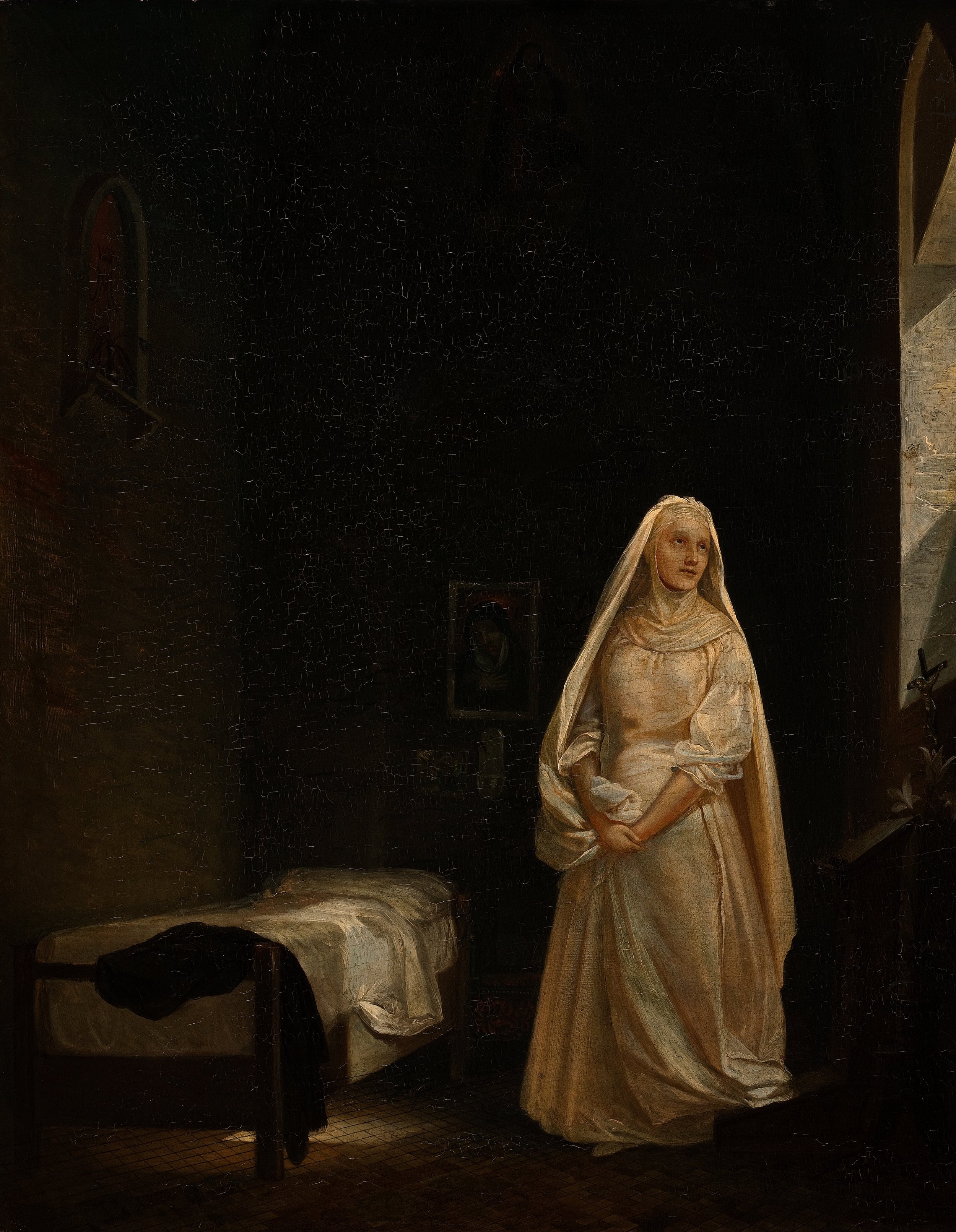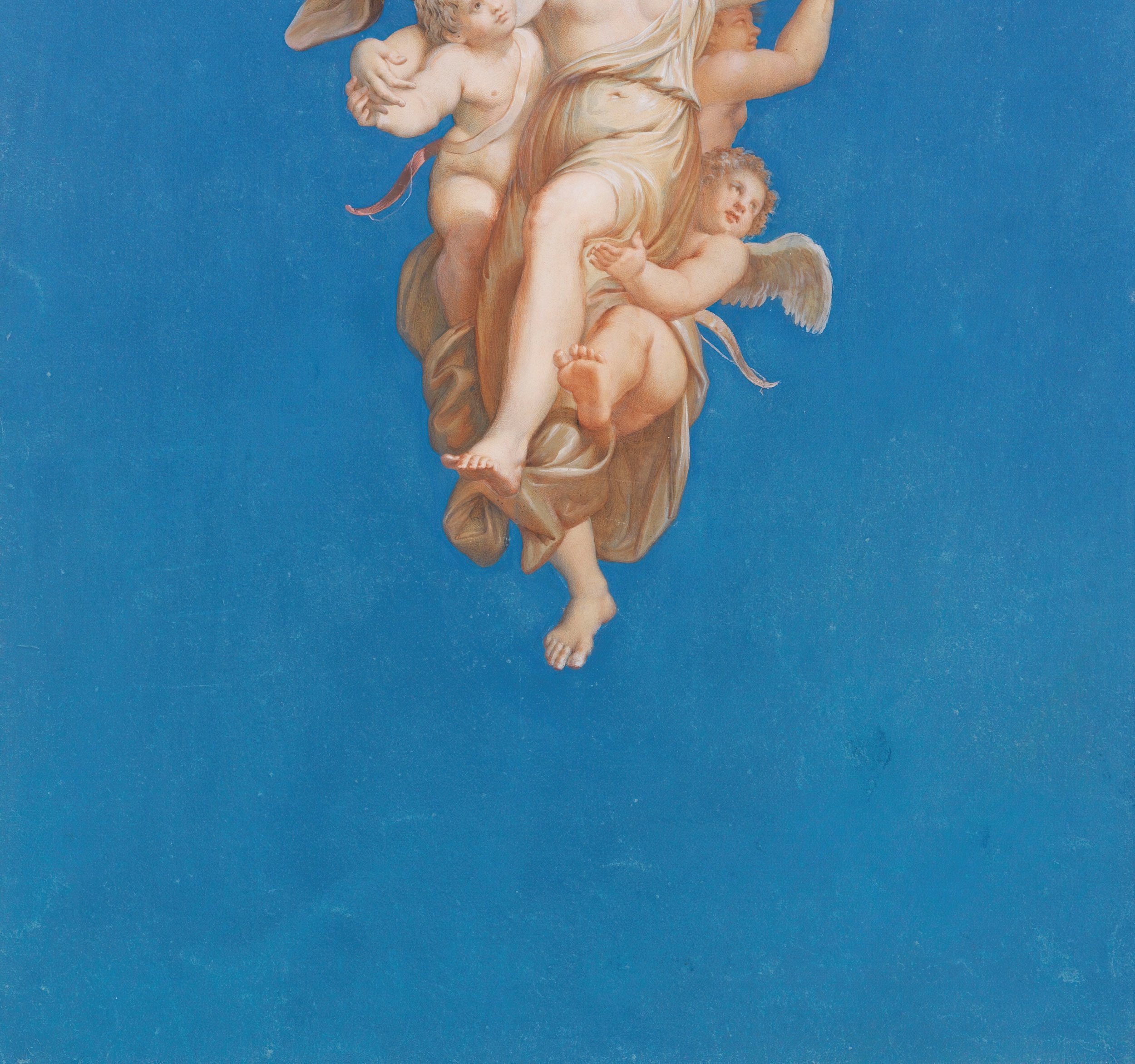A Scene Report from a Literary Gathering

A Scene Report from a Literary Gathering
Kevin LaTorre
On Manifest Community & the Wavering of Words
Begin with the image. Though it must pass through these words I’ve written, it can bring you into the illusion of an embodied community. Into a literary gathering.
The four-horned cathedral tower at Duke University broods alone above the trees of Durham. Its stone crown marks the campus from miles away.
In late February, I came to campus for the poetry reading which opened the Poetry & Theology Symposium at the Duke Divinity School. My walk to the event passed beneath the cathedral, and I wished that the event I was approaching was housed inside it, with offerings to God like the stained glass and humble candles there. But the event was in the Alumni Common Room, not the cathedral.
The Symposium began there, where the poets Dante Micheaux, Toby Martinez de las Rivas, and Lisa Russ Spaar read their work aloud. The lecturers, professors, and students filled eight rows of chairs in the center of the room. The more distinguished literary citizens sat deep within the sofas and armchairs behind them. A baby grand piano waited beside the buttressed stone fireplace across the room. A harried staff member roved around to take pictures with his iPad. I sat along the wall nearest to the door, diagonal to the lectern and only able to see the poets as half-profiles. The distance from the seat to the lectern was insurmountable. I couldn’t say I belonged. But in certain communities, the writer and the listener are much closer, and they both belong. Or, they could be, and they should.
Dr. Thomas Pfau, the accented professor whose research had birthed the Symposium, welcomed us as “an international selection of scholars at the intersection of poetry and theology.” Next to approach the lectern was Toby Martinez de las Rivas, an incongruous Brit with gray-blond bangs. He introduced Dante Micheaux, to warm applause.
Which details do you know that I’ve omitted? My essay is a rendering that I mediate to the reader, not a reality. Like a church service seen through a screen, this account of that poetry reading must pass through the distortion of my words to reach you. And however immediate I make my words, they will not bring you into the embodied Common Room of that evening.
This essay is only my selection of details which you trust to be true, drawn like a pipette’s remnant from the hyper-object of sitting in that room with dozens of people whose clothing, conversations, and intentions wavered over me like the dissipating aromas of passing entrées. This essay draws from my favorite form of the genre called journalism: the “scene” report, where a writer goes into unreachable places and unknowable conversations.
But my enjoyment—especially in scene reports from literary gatherings—is leavened with the guilt of knowing I shouldn’t eavesdrop. Many scene reports are gazes through the parlor window into the party, for aspirants who could belong in that parlor but are rarely there. These essays depict what would it be like to join literary communities in places where you weren’t invited or couldn’t go. What would it feel like to sit in a seat diagonal to this lectern? What kind of community would enable me, together with you, to enjoy poetry and one another?
But, again, these essays are mediated, which limits them. Can you know who the other attendees were at the Symposium reading? Can you know what I means, in this essay? I am the eye, but also the sieve. I am the screen which transmits other people into your mind as images, which is no true way for you to know them. If only we had communities that manifested in physical gatherings, where we meet our neighbors and their meanings directly, right?
Here I am, in the Alumni Common Room, where the poet Dante Micheaux has begun to read. Dante dialed down his usual formality but maintained his taste, wearing leather Oxfords to the ankle and a white linen shirt buttoned to the throat. He read nine poems without hurrying or stuttering.
Of the three poets, Dante wrestled most like Jacob with Scripture. I heard his struggle with the Word thrashing even in his measured voice. “I’ll read next from ‘Theologies for Korah,’” Dante said. “Korah was the Israelite swallowed by the earth for disobeying God. And Cora is my goddaughter.”
Superior to the purifications
of Old Law was that of water. Be opened, daughter.
All power on heaven and earth is. No questions.
Be opened. Hold fast to my teachings, not those of
stewards but my words. Seek you first, girl, the kingdom
of my love, with all your mind. All your mind. Do not
forget your mind. You are mine. Be opened. Power!
In the way I most admire, Dante is a Christian poet with bits of insect wing in his beard: “I practice the ways passed to me / by descendants of followers of a wild man,” he read. “Listening to him confess himself unfit to / loose latchets on shoes.” We faithful ought to foster his art, because the poems Dante read, ranging and baying like hounds who will never be house-trained for the church, expand what we can hear of the Word. Needling them for exact orthodoxy would deny us their fierce songs.
I struggled with this needling at the event, because I wanted to measure the theologies of these poets and their poems. I’m recalling how one of them mentioned a colleague who thought himself a “God-fearing agnostic,” and how we’d all chuckled at the term. Such form-skirting, faith-bending play is the place of poets. But does it make our faith into mere words? Like nothing else, the Word is permanent while we are impermanent, passing like steam from the mouth of God. Were the poets teasing away the Word into abstractions? Were we, by giving them our attention? At the reading, these questions passed through me more easily than they do now. There, I stopped needling for a time because I heard the poems and saw the poets where they stood.
Toby Martinez de las Rivas read more intensely than Dante had. From my slanted vantage, he looked like a middle-aged English punk who once turned to Gerard Manley Hopkins out of desperation and today wears gray blazers with black elbow patches. He is the Blackburn Artist in Residence this year, come to Durham to practice and teach what he called “the word in the poetic sense and the Word in the religious sense.”
While reading his poems of bewilderment and razed lands, Toby made odd, percussive use of silence: long, five-second pauses between stanzas in the poem “Three Weeks After Conception”; then longer, anguishing ten-second pauses between each fragmentary line of “The Great Woods of the”; all with confidence. “These texts are bodies,” Toby read. “Poem is transfiguration.” Will, the small young professor who had introduced Toby by lauding his work as “lyric apocalypse” sat through these poems with a look of ambiguous displeasure.
When Toby returned to his seat, Lisa Russ Spaar took the lectern. Before she began to read, she donned plastic glasses with lime-green arms and round brown frames. She is a small woman who dressed well but discreetly, in a cozy dress whose colors could’ve been orange and navy.
That is, unless Lisa dissolved against the image of herself seated between Toby and Dante in the Q&A session. Unless what followed Toby’s reading was not Lisa but the sound of Dante saying, “Poetry and theology are each ways of examining, ways of being, ways of thinking.”
This is how the reading happens in my memory, that melding of images which always play out of sequence: Lisa recalled a colleague who thought himself a “God-fearing agnostic”; Toby spoke of his admiration for the blind, Calvinist Cornish poet, Jack Klemmer; Dante offered his “very Protestant understanding of a very personal relationship with God” to say that “theology must be examined as we inherit it.” These words headline my recollection of the reading—never mind its actual sequence—and so in this mediated version you’re hearing now, they become like the poetry itself.
When Lisa read short poems drawn like blood from her poetic personae, I took few notes about the poems themselves. So I’m tempted instead to describe their titles, or the anecdotes she mentioned. When Lisa said the titles “Penance” and “Temple Tomb,” I felt the Lenten mortality we were all supposed to be contemplating then.
After reading the poem “Sky,” Lisa spoke about the “flamboyant” Episcopalian music director who taught her the liturgical beauty of “real” church music, all the carols she still hums. She’d already mentioned that she was raised a “Northern Presbyterian.” So, if I can narrate the present religious practice which Lisa didn’t mention, she might have added, “That’s probably why I’m a happy Southern Episcopalian today.”
Or I can write different lines for her. Lisa could’ve spoken of Catholic aesthetics and their richness for her verse, which, unfortunately for Lisa, balance always too lightly against the Church teachings that trouble her heart.
These two fictions trickle like tributaries from the very real fact of Lisa standing at this lectern that day. Either story could be heard as true. Through this essay that mediates my experience, you are less equipped to know. To be present in the room where Lisa’s voice vibrated through the air to our ears better equipped us to know the meaning of her poetry, the meaning of her presence and ours. More than ever before, we experience one another through screens and find an affliction of uncertainty, of meaninglessness, inside them. It’s why we need immediate experiences of one another, in rooms where we don’t have to pass through anything to meet and contemplate each other as fellow creatures bearing the Imago Dei.
Before the Q&A session, I bumped into P, the raspy-voiced teacher and poet I’d met at the Pour Taproom in Durham. He and I stacked chairs together once the event ended, like the church boys we are. We each belonged. P offered me a beer in town, but I told him I didn’t have the time. We said more. We later traded poems. We’ll soon meet one another’s wives.
I’ve omitted much here because P is a new friend, not a character the way I’ve rendered myself, Dante, Toby, and Lisa. To withhold him from this essay hopes to preserve him against my own distortion. Writing a word mediates its meaning for others; meeting anyone in person connects you to each other. Let us meet, then.
Dante, in his poem “The Second Beautiful Harvest,” writes,
I have made my journey to the cold hills
to commune with my people there.
I come for the second beautiful harvest
and have waited long to look into its eye.
The poem envisions the “libations” of “the hum of many voices: burgeoning / friendships and reunions in the low light.”
Let our meetings burgeon and be immediate, unobstructed by screens. Let our meetings join those in the seats and those on the stage, so the distance between them dissolves. Let the artists of our faith be insect-speckled, free to testify like John the Baptist. And, by God, let there be a beautiful harvest.
Kevin LaTorre
Writer & Poet
Kevin is a writer and poet. His fiction, essays, and poems have appear (or will appear) in Plough Magazine, Solum Literary Journal, Reformed Journal, Ad Fontes, and other venues. He writes at kevinlatorre.substack.com.
Photography by Rob Potter




